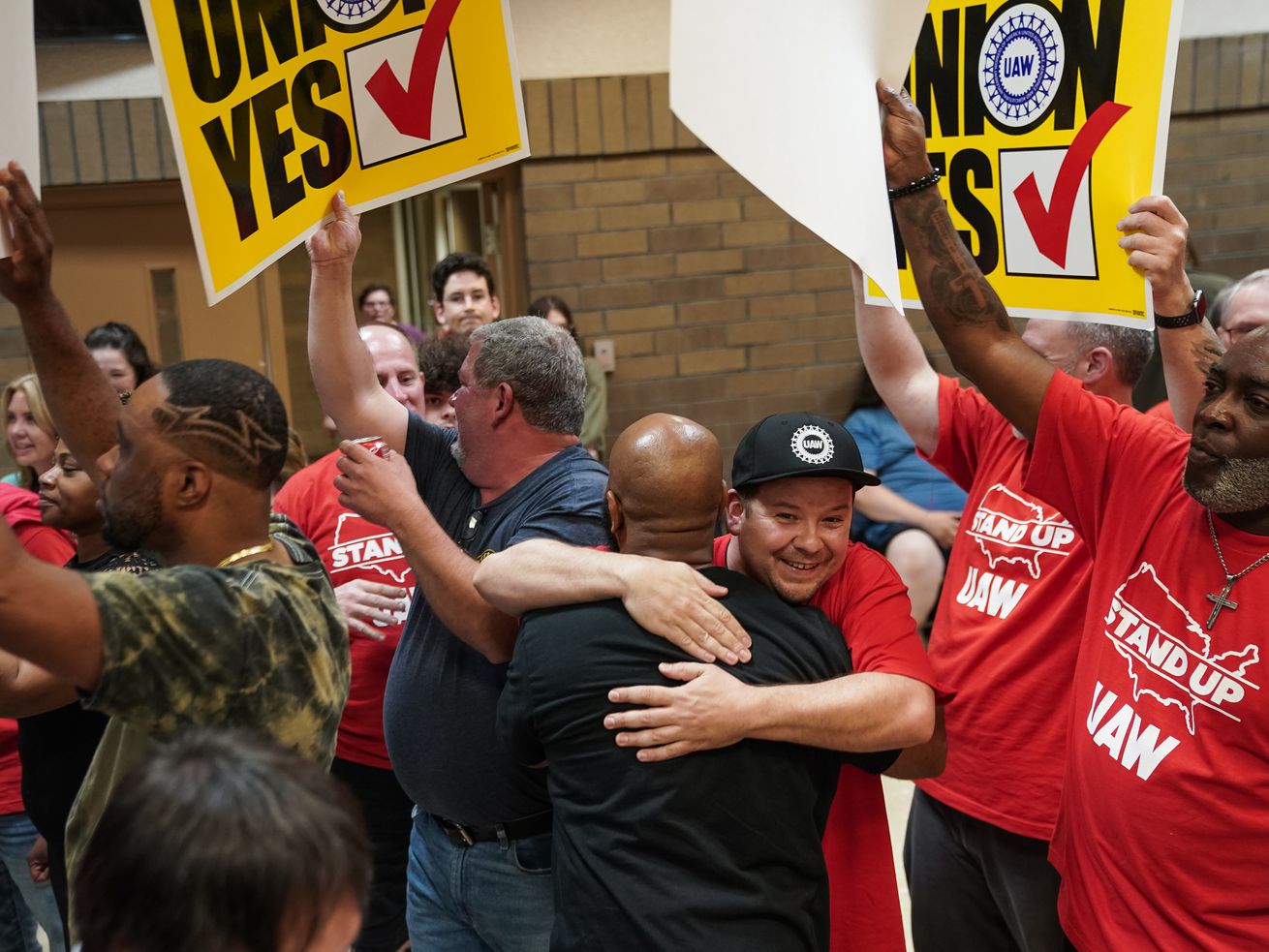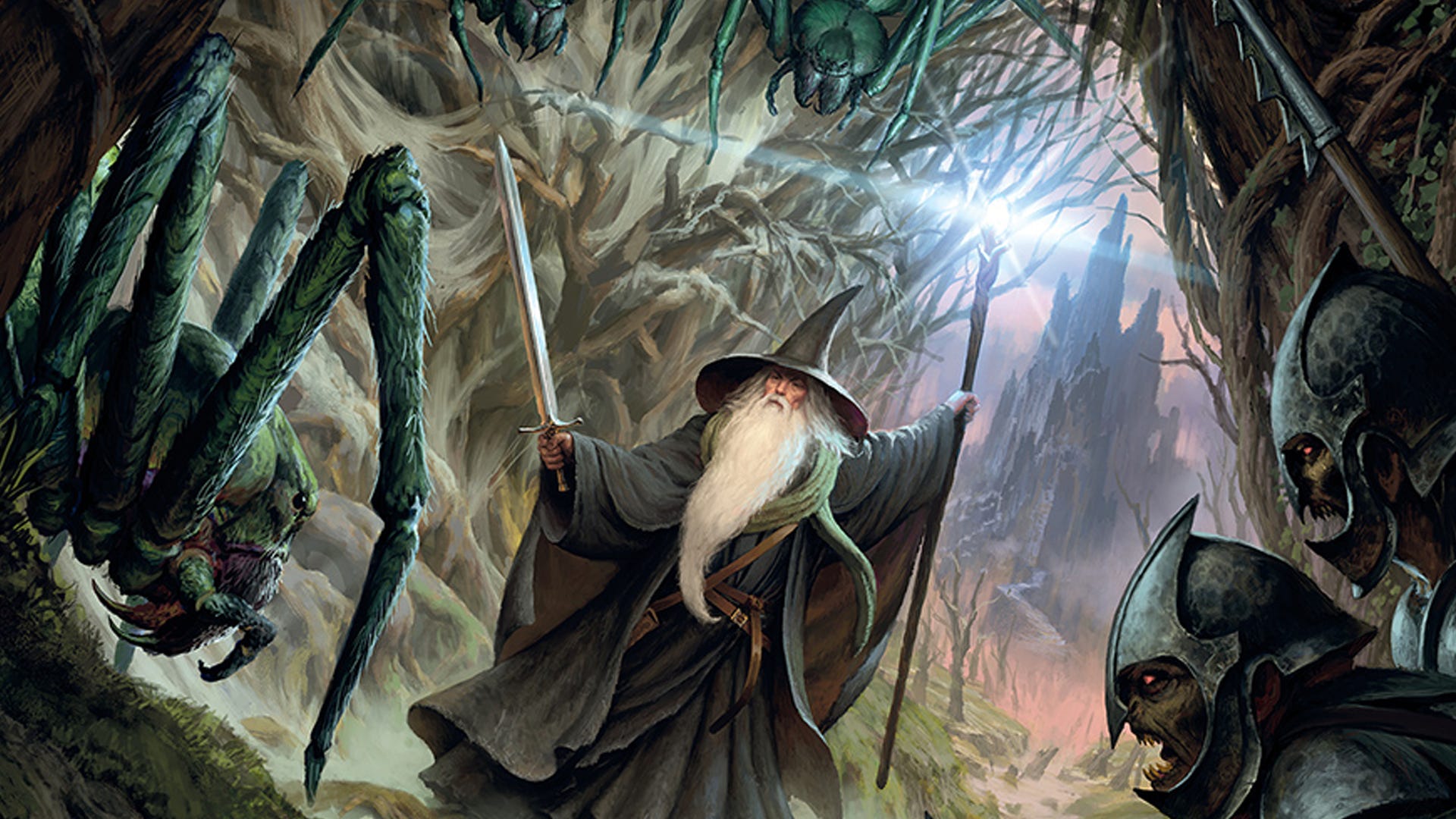
The UAW is unlocking worker power in the South. An expert explains why it matters.
The Volkswagen plant in Chattanooga, Tennessee, has about 5,500 employees. On April 19, almost three-quarters of them voted to join the United Auto Workers.
It’s the latest victory for one of the country’s largest labor unions, coming on the heels of a major contract win last fall with the “Big Three” American carmakers: GM, Ford, and Stellantis (which merged with Chrysler), whose workers make up about 150,000 of the UAW’s 400,000-plus membership.
A union vote at Volkswagen’s Chattanooga assembly plant is big news for many reasons. For one, the US was the last country where Volkswagen workers didn’t have some form of representation. But perhaps more importantly, it’s failed twice before, once in 2014 and again in 2019; Volkswagen Chattanooga will be the first non-Big Three auto plant in the South to become unionized.
The UAW has no intention of slowing down now. Union president Shawn Fain told the Guardian that the Volkswagen plant was “the first domino to fall” in a strategy targeting mainly foreign automakers in the South: In May, there’s a UAW vote at a Mercedes plant in Alabama, and organizing efforts are also beginning at BMW, Toyota, Honda, Hyundai, and Nissan plants, among others, across several Southern states. (The union has also set its sights on Tesla facilities in Texas, Nevada, and California.)
The UAW has eyes on the South because it stands to gain huge ground there. In the last few decades, a slew of auto plants have popped up in the region, a trend that’s only accelerating as more car companies invest in making EVs and announce new manufacturing facilities in the US. States often offer tempting subsidies to attract automakers to set up shop within their borders, but companies have an extra incentive to head South: it has some of the lowest unionization rates in the nation. In South Carolina, just 2.3 percent of workers belong to a union, compared to 24.1 percent in Hawaii and 20.6 percent in New York.
This stark regional difference is tied to a history of racist anti-labor laws, an outgrowth of Jim Crow laws that segregated Black and white Americans in the South until they were overturned by the Civil Rights Act of 1964. Vox spoke to Andrew Wolf, a professor of global labor and work at Cornell University, on how unionizing the South could not only raise wages for all auto workers, but also tear down some of the racial disparities workers of color experience in the economy.
The following conversation has been edited for length and clarity.
Why was the union vote at Volkswagen’s Chattanooga plant such a big deal?
This was a big deal for many reasons. There has not been an organizing victory of this size in the South in decades. It’s a place where the union had lost previously. It just has really big ramifications for the future of organized labor, and the future of the economy in the South.
This is the first Volkswagen union in the US, but Volkswagen already has unionized workers in other countries. Did that make organizing easier or harder here?
The existence of unions and the really strong labor laws that exist in Germany generally certainly helped. It helped compel the company to be far more neutral and less aggressive in opposing the union than, for example, what’s happening right now at Mercedes in Alabama.
Yes, workers at the Alabama plant are claiming Mercedes is retaliating against their union efforts. As you noted, the Chattanooga vote is a huge deal because it’s in the South. I think I know the answer to this, but — are there many unionized auto plants in the South?
No. These companies opened in the South to avoid unions, especially with the rise of neoliberalism after the general financial crisis in the 1970s. It’s a within-country version of outsourcing. More and more companies move to the South to avoid unions, to take advantage of the lower wages that are the historical legacy of Jim Crow. You see it explicitly in the comments of the governors — you had the governors of all of these states talking about how this unionization would undermine the culture and values of the South. That’s very coded language for, “We don’t let workers get representation or fair pay in the South, because it’s better for business.”
In the past few years we’ve seen some high-profile wins for American unions, but the reality is that union membership rates in the US are pretty low. In the 1950s, about a third of workers were in a union. What happened in those intervening years?
Many things happened — globalization, neoliberalism, change in laws. The biggest thing was just that there were declines in the industries where unions were strongest, and a lack of union organizing in the industries that were fast-growing. So that combined with increased employer hostility, increased political hostility, and weakening of labor and employment laws, drove down the rate of unionization in this country.
In the South, specifically, what were the policies that led to such low unionization?
As with everything in America, the answer to the question is race. Avoiding unions was part of the Jim Crow apparatus. Unions are particularly threatening to orders like Jim Crow, because they bring workers across races together in common cause. So unionization was a real threat to the economic order of the South and that has had lasting impact, with wages being significantly lower in the South, unionization rates lower in the South, and poverty rates being higher.
The National Labor Relations Act passed in the ’30s, and then after World War II, Congress passes the Taft-Hartley Act, which undermined the NLRA. But specifically, [Taft-Hartley] empowers states to undermine [the NLRA]. All the Southern states passed these right-to-work laws while the more heavily unionized states in the North and Midwest didn’t institute right-to-work. Essentially, it’s a strategy that makes it both harder to organize and keep the unions funded if you do organize.
And what are right-to-work laws?
Right-to-work laws are laws that allow workers in unionized workplaces to refuse to pay fair-share fees. Where unions exist, workers can either become a member, in which case they pay dues, or if they don’t want to become a member they have to pay their fair-share fees, which covers the cost of the union representing them. This makes it much harder for unions to fund themselves. Then there’s other little things that exist in right-to-work laws in different states, such as requiring the union to get everyone to re-sign up for the union every single year in order to pay dues.
Do workers who aren’t members of a union still benefit from them?
[Yes.] For example, if you’re a worker in a shop that’s unionized in a right-to-work state, and you decide you don’t want to pay dues, but then you get fired and you want to challenge that termination — the union is still legally required to represent you, even though you have not paid for that representation.
How does low unionization tie into the high rates of poverty we see in the South today?
There’s two mechanisms. There’s a significant and persistent union premium, with unionized workers making more money. Additionally, there’s the spillover effects of this. If you have a high unionization rate in your locality, the other employers pay better as well, to remain competitive — a kind of “rising tides lifts all boats” situation. Without unionization, in the South, it depresses wages across the board, and then in turn it depresses wages across the country because there’s always this threat that auto companies could leave Detroit and go south.
Also, many Southern states haven’t set their own minimum wage separate from the federal minimum [which is still $7.25 per hour].
Yes, exactly. And right now there’s this huge push across the South to roll back the few labor rights they do have — most prominently, removing all these child labor laws. They just rolled back health and safety laws, including heat laws in Florida for agricultural workers.
To get back to Volkswagen in Chattanooga — the union vote passed with 73 percent saying yes. Is that high? Just okay?
I was shocked. I mean, it’s a completely overwhelming victory, especially when you consider that the union had lost here in the past. It just really shows you how powerful this moment is right now, and how much workers are buying the message that the current UAW is selling.
The Chattanooga facility voted no to unionization twice before. What do you think was different this time?
Everything’s different. The biggest difference was this massive contract victory that UAW had at the Big Three last fall. When workers see unions win, it increases interest in the unions — so it had a real galvanizing effect. There was so much publicity on it, talking about these big wage increases. I think these workers down in the South were looking at their paychecks and comparing, right, and realizing the raw deal they have. Additionally, you had the experience of the pandemic, where all these workers were told they were essential, but then they weren’t compensated as if they were essential. It’s just spurred this massive upsurge in labor organizing since the pandemic.
What did you think when you heard that the UAW was going to try to unionize the South?
It just struck me as really smart, to leverage this big contract victory to go out and try to improve conditions more generally in the industry. Because, as I said, a rising tide lifts all boats, but also, the sinking tides in the South can diminish the wages for unionized workers in the North. I think [UAW organizers] also realize there’s this imperative, that you can’t let this big disparity in auto wages exist between the North and South and continue to win these meaningful contracts.
What does this portend for the upcoming Mercedes UAW vote? It’s a different state, a different company. Are there different headwinds?
It will be more challenging there, because the company is being far more aggressively anti-union. We talked about how the relationship with the VW union in Germany helped in this situation. But, at the same time, I think there are reasons to be hopeful that the UAW might succeed given what we’ve seen elsewhere. I feel much better about it considering that the Chattanooga vote was 73 percent than if it had been, say, 51 percent.
Right now, many foreign carmakers are trying to establish a bigger presence here as the US transitions to electric vehicles. Does that make it more pivotal that the UAW expansion happen right now?
Yeah, and you saw this reflected in the contract the UAW secured with the Big Three as well. The move to electric vehicles is going to really change the auto industry — it’s probably going to result in less putting-the-car-together jobs, so to speak, but probably more parts jobs. So the UAW contracts last fall secured the right to organize some of these battery factories. It’s absolutely coming at the right time, because it’s a moment [that] would have only further undermined the UAW foothold in the industry.
Do you see this as potentially inspiring for other companies and industries in the South?
For sure. I would imagine that is what we would see. It’s hard, though — I don’t know if interest in movements for it will necessarily result in victory. But I think you’ll see much more labor action in the South and elsewhere across the country.

